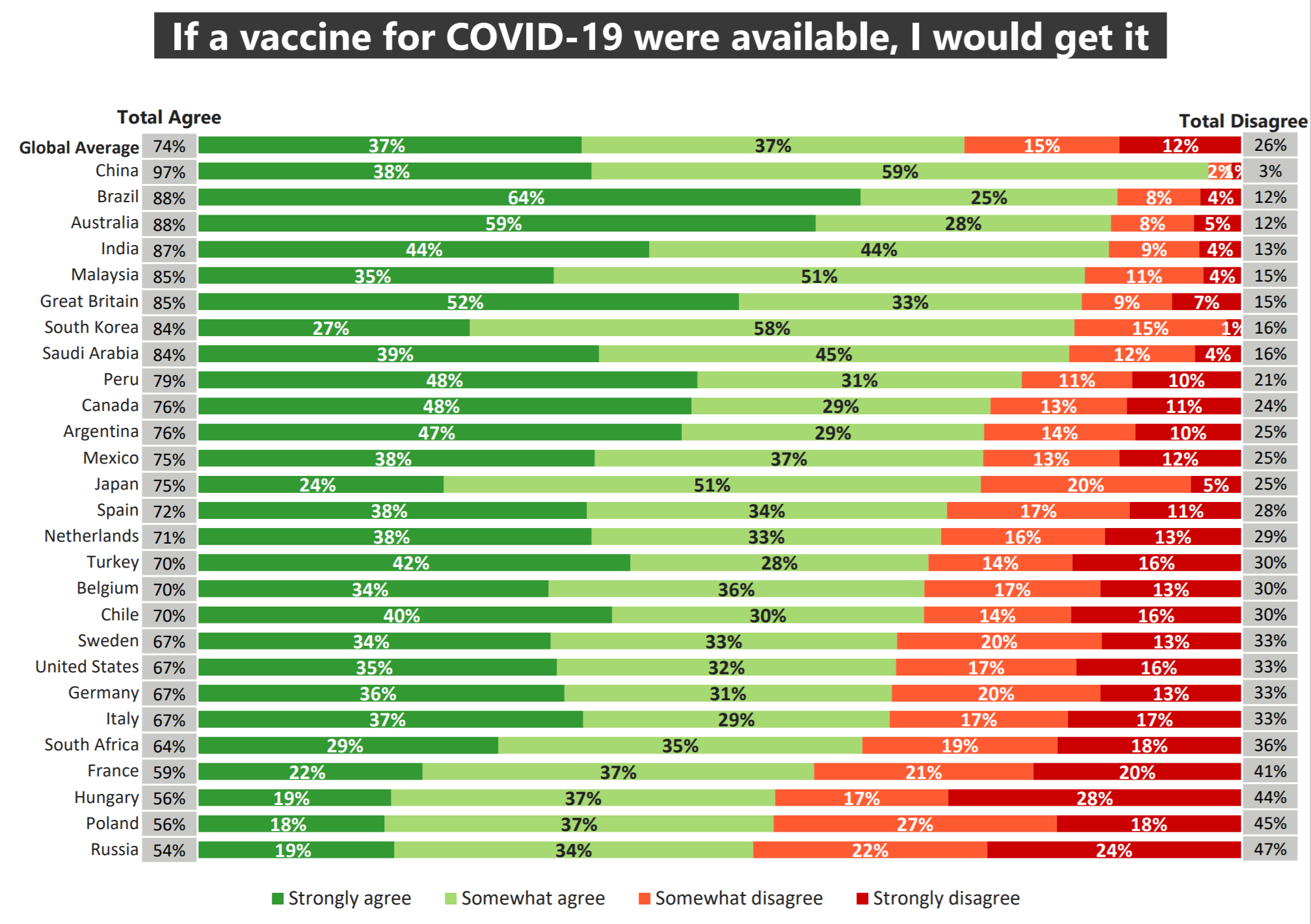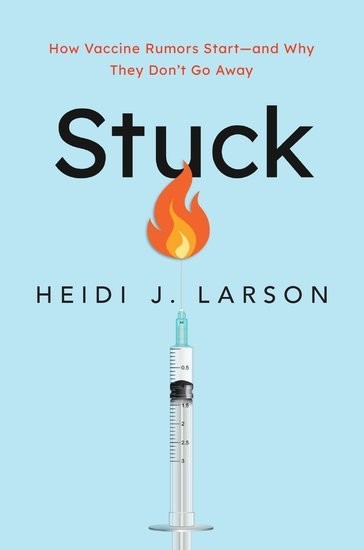How to counter the anti-vaxxers: our World Vs Virus podcast
- Ipsos poll found 27% of people globally would not want a COVID vaccine.
- Opposition to vaccines is a broad spectrum, from nervous parents to extreme conspiracy theorists.
- Vaccine experts Paul Offit and Heidi Larson feature on World Vs Virus podcast.
- Subscribe to the World Vs Virus on Apple, Soundcloud or Spotify. Access other World Economic Forum podcasts here.
Opposition to vaccines is almost as old as vaccines themselves. It started in the 1850s when libertarians and people of certain religious beliefs campaigned against making the smallpox vaccine mandatory, according to anthropologist Heidi Larson, author of Stuck: How Vaccine Rumors Start — and Why They Don’t Go Away.
But the voices against vaccines are louder today than ever before, due to the power of social media and the rise of populist politics, Larson says in this week’s World Vs Virus podcast.
 "lazy", :class=>"", :alt=>""}” use_picture=”true”>
"lazy", :class=>"", :alt=>""}” use_picture=”true”>
“A lot of the questioning around vaccines does reflect a kind of anti-establishment anti-elite [sentiment…] aligned with some of the issues around populism and polarization, which is anti-elite and pro-‘public knows best’,” Larson says.
“Whereas the science behind vaccines, as well as the regulations and the recommendations, are at many levels very top-down and also seem farther and farther away from the individual in our society.”
 "lazy", :class=>"", :alt=>""}” use_picture=”true”>
"lazy", :class=>"", :alt=>""}” use_picture=”true”>
Image: OUP
Larson heads the Vaccine Confidence Project at the London School of Hygiene and Tropical Medicine – an organisation that tracks rumours and misinformation about vaccines and helps counter them. She says we have to start improving people’s confidence now – well before a COVID-19 vaccine is available – to ensure populations around the world want to take it.
And that means listening to people’s concerns, says Larson, who worked on improving vaccine confidence during the Ebola outbreaks in Africa – which was achieved by talking to people and taking them seriously.
“The mothers who came to me and said: ‘We are not flat-Earthers’ – these are not what I would call anti-vaxxers, which is a very strong and outspoken smaller group, but with huge impact,” Larson says.
“There is a very large group of people in the middle between the two ends – very pro and very anti – who have some genuine questions and concerns … and they’re the ones who feel like they’re being demonized for even asking questions.”
Paul Offit, professor of vaccinology at the Perelman School of Medicine at the University of Pennsylvania, has a similar message: it is quite understandable for people to question whether they should be vaccinating themselves or their children.
Offit, who co-invented a vaccine against rotavirus, an illness that causes diarrhea in children which can be fatal, says the only way we will beat COVID-19 is with a vaccine.
“Herd immunity, or community immunity, is not going to be effectively induced by natural infection. It basically never has been and it never will be. I think that only with the vaccine, can we stop it. There’s always going to be at risk of spread until there’s a vaccine.”
If a vaccine is developed that is 75% effective, two-thirds of the population would need to take it, he says, meaning public confidence is crucial.
Patient optimism
“I think you should be sceptical of any vaccine. I think you should be sceptical of anything you put into your body. I think what you shouldn’t be is cynical,” Offit tells World Vs Virus.
“Crossing the line and being cynical and believing in these conspiracy theories, like the virus is spread by the 5G network or Bill Gates wants to just make money off of the vaccine, those kinds of conspiracy theories, which are often embraced by the anti-vaccine activists, that’s much harder to counter. People who embrace those conspiracy theories are much less likely to be compelled by reason and logic and data.”
So what chance do the voices of reason have against the conspiracy theories and false rumours that play well with people who feel disconnected from experts and ‘elites’?
Larson calls herself a “patient optimist” and has high hopes for the younger generation.
“Children of parents who have refused vaccination, interestingly are starting to stand up and say: ‘Wait a minute, that was your decision. I go to school, I’ve read about vaccines, I know the science, I want my vaccine. I’m not going to make that mistake for my children.’” she says.
“I’m not saying the sentiments that drive some of these [fears and false rumours] will go away. They haven’t gone away since the 1800s. But the nature and the amplification and the polarization of these sentiments can be mitigated.”
Subscribe to the World Vs Virus on Apple, Soundcloud or Spotify. Access other World Economic Forum podcasts here.
Listen to our sister podcast The Great Reset, which looks at how we can rebuild a cleaner, fairer, smarter world after COVID-19:
*** This article has been archived for your research. The original version from World Economic Forum can be found here ***


